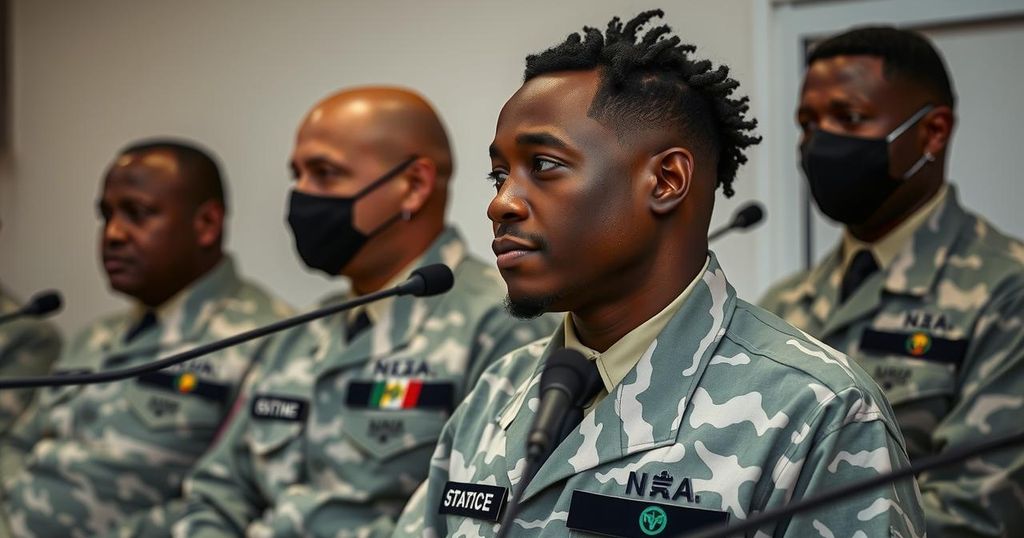The Pentagon has repatriated two Malaysian men from Guantánamo Bay, both of whom pleaded guilty to war crimes associated with the 2002 Bali bombing. Their release, part of a diplomatic arrangement, allows them to reintegrate under Malaysia’s de-radicalization program. They provided testimonies that may help prosecute the mastermind of the attack, Hambali. Their transfer reduces the Guantánamo detainee population to 27.
The Pentagon has successfully repatriated two Malaysian individuals from Guantánamo Bay, Cuba, who pleaded guilty to war crimes. This operation occurred nearly a year after their admission of serving as operatives for the accused Indonesian terrorist leader, Hambali, who masterminded the 2002 Bali bombing. The transferred detainees, Mohammed Nazir Bin Lep, 47, and Mohammed Farik Bin Amin, 49, have spent nearly two decades in detention, since their capture in 2003, and will now be under the supervision of Malaysia’s de-radicalization program. This repatriation further decreases the number of detainees at Guantánamo to 27.
Prior to their return, the men provided sworn testimonies intended to aid in the upcoming trial of Encep Nurjaman, known as Hambali. He faces accusations of orchestrating not only the deadly Bali attack but also other terrorist operations during that period. Both men admitted their roles in helping Hambali evade capture following the attacks, illustrating their involvement with the network responsible for the horror that unfolded in Bali, resulting in the loss of 202 lives, primarily Australians.
The Pentagon’s decision comes shortly after another release to Kenya, demonstrating a trend toward reducing the number of detainees. During their legal proceedings, their backgrounds revealed a history of training at Al Qaeda camps and intentions to participate in suicide attacks, although they later became entangled in logistical support for Hambali and were indirectly involved in supporting his terrorist activities.
Former attorney Brian Bouffard remarked on Mr. Bin Lep’s future aspirations, affirming the intent for him to re-establish ties with family and lead a peaceful existence post-release. His co-defendant expressed ambitions of living a meaningful life, attending to familial responsibilities, and pursuing a viable career. Such insights reflect a yearning for rehabilitation against the backdrop of past indiscretions.
However, the brevity of the sentences imposed has raised concerns among some relatives of the Bali bombing victims, who feel disappointed that the timeframe of justice does not align with the gravity of the terrorist acts. The individuals’ cooperation through their testimony is viewed as a hopeful development in pursuing accountability for other perpetrators, like Hambali, furthering the relentless pursuit of justice in how terrorism is confronted.
The current article discusses the Pentagon’s repatriation of two Malaysian men from Guantánamo Bay who had pleaded guilty to war crimes related to the 2002 Bali bombing. This context is crucial in understanding the ongoing debates about detaining individuals associated with terrorist organizations and the impact of U.S. counter-terrorism strategies. The men’s involvement in supporting one of the region’s most notorious terrorist leaders reflects the complex nature of counter-terrorism efforts and the long-term consequences of such affiliations. Recent movements to reduce the detainee population are indicative of changing policies on national security and civil liberties, particularly in light of the ethical implications surrounding detainment and interrogation practices, notably those employed by the CIA.
In conclusion, the repatriation of Mohammed Nazir Bin Lep and Mohammed Farik Bin Amin marks a significant moment in the ongoing struggle against terrorism and its affiliates. Their confessions and cooperation with U.S. authorities will potentially impact the prosecution of key figures such as Hambali. While the release represents a policy shift towards a reduced Guantánamo population, it simultaneously raises complex questions regarding justice and the experiences of victims of terrorism. The results of their testimonies remain crucial in achieving accountability for past acts of violence.
Original Source: www.nytimes.com






